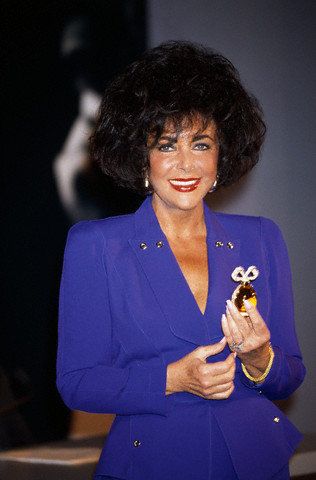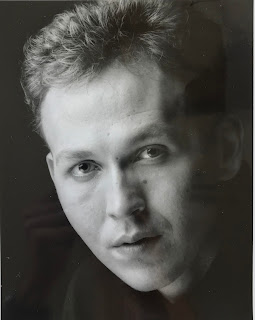Dear Edward,
Every morning, before I start my day, I wash my face. And I think of you.
Every night, when I wash my face or, let’s be real, when I decide I’m too tired to wash my face, I think of you.
Whenever I consider purchasing a new skin care product, which is far too frequent, and it’s you I can thank for this obsession, I wonder: Would you approve?
The truth is, even though you died nearly eight years ago, I think of you every day. The memories start and end with skin care, but in-between, you come to mind when I think of everything from barbed wire to Gwyneth Paltrow to black nylon Prada bags.
Back to skin care. Consistency is the key to a successful routine, you used to tell me, though the many scientific-sounding and bewildering products strewn across your bathroom vanity — seriously, cold plasma? — somewhat belied your advice.
I still refer frequently to the multi-page, handwritten skin care regimen you concocted for me years ago. But to be honest, Edward, I sometimes buy products of which you would most certainly disapprove.
A Potentially Twirled Jar of La Mer Neck Cream
For example, I fell down a La Mer rabbit role recently. The brand’s products are ridiculously expensive; the neck cream alone is $330. While I suspect you’d appreciate La Mer’s proprietary “Miracle Broth” ingredients and the French name, your eyebrows would have shot skyward if you’d seen me purchase that neck cream for $80 on eBay.
You’d have challenged me: How would I know the product isn’t several years old and had therefore lost its efficacy? For that matter, how would I know it hadn’t been stolen — or “twirled,” as you’d have said — by some skin care outlaw, no doubt affiliated with a nefarious retail crime syndicate?
With your consternation as my muse, I eventually did some Googling and learned about batch codes — which are, in essence, a freshness date on skin care products. Turns out, that $80 neck cream I bought was nearly three years old.
No more skin care on eBay for me.
Every time my hair stylist paints over the gray on my temples, I think of you. As a seasoned stylist and educator, you used to color your hair frequently. I never quite knew what hair color to expect when I’d arrive in Charlotte for one of our visits — though my favorite of your various self-coloring experiments, at least for its name, was “Autumn Wheat.”
During one of our last phone calls, I asked what color your hair was at that moment. “Soot,” you replied. When I asked why, you said you’d applied a medium-brown hair dye, set a timer for 12 minutes, and promptly conked out. When you awakened more than 45 minutes later, you raced to the mirror and gasped.
“My hair’s the same color as Elizabeth Taylor’s in those White Diamonds commercials!,” you said, and we both had a good laugh.
What’s in That Paper Bag?
You developed a fascination with beauty and skin care at an early age. When you were an elementary school boy, living in the country in Morganton, N.C., you were itching to spend birthday money. You asked your father to take you to the drug store so you could spend it.
“What on, son?,” he wondered. You answered vaguely, but you knew exactly what you wanted, because you’d seen it advertised on TV.
Your father waited while you entered the store. When you returned with your treasure concealed in a paper bag, he wanted to know: “What’d you buy, son?”
Again, your response was vague. But during the car ride home, your father gently persisted. Reluctantly, you revealed your purchase: a white jar of Jergens Face Cream, capped by a pink lid, decorated with the heads of a blonde, brunette and redhead. Your father moaned in quiet dismay, not unlike Lurch on “The Addams Family.”
(By the way, Edward, would you believe someone was recently selling a jar of that same 1960s Jergens Face Cream on eBay? Do you think it has lost its efficacy?)
We used to laugh about the Jergens Face Cream adventure, and I never tired of hearing about it.
But there were other stories of your childhood that still haunt me.
A Harrowing Decision
As an overweight gay boy in the 1960s rural South, you were bullied relentlessly with taunts like “fat sissy!” Or worse. Classmates would call you on the phone and threaten to kill you.
One day after school, several boys chased you through a pasture until they cornered you by a barbed wire fence. You faced a harrowing decision: Escape through the fence or get beaten up. You chose the fence. It would have been easier to tell your family you did something crazy and crawled through barbed wire than to confess you’d been battered by other boys.
Despite the many successes you had later — you ran the top salon in Charlotte for years; even Gwyneth Paltrow visited while in Charlotte making a movie — you could never stop hearing those childhood taunts in your head.
Why Women Rushed Up to You in Restaurants
How, I wonder, did you emerge from those years to become an exceptionally kind, sweet soul?
I believe that being bullied helped you become empathetic to others. Though redneck boys tried to take you down, you responded by getting out of Morganton when you were 21, landing in Charlotte, and beginning a career of lifting up women — and men.
You did more than just make Charlotteans look good. Any skilled hair stylist or makeup artist can do that. You made them feel good. Treasured, even. And for that, you earned their love and loyalty.
I saw this in action time and time again. You and I would be in a Charlotte restaurant and a client of yours would inevitably rush across the crowded dining room to give you a big hug, even if she’d just seen you a day or two before. You were beloved, to the extent that I can count at least five people — myself included — who considered you their best friend. You left many good things behind. But to me, this is your real legacy.
But what made you a best friend? I knew I could tell you absolutely anything — things I couldn't tell anyone else — and you’d truly listen. You’d understand. You’d often offer good advice. And though you might kid me about whatever I confessed later, you didn’t judge me.
Here’s something else I’d say about you: You were resilient. Whatever obstacles stood in your path — and I witnessed many over the course of our 36-year friendship — you always found a way around them.
Well, almost always.
What to Do About the Void?
The shoulder pain, the back pain, the neck pain, the spinal stenosis, all of which were exacerbated by standing up all day attending to your clients; how did you endure it as long as you did? By my count, despite multiple surgeries and a nylon Prada bag bulging with bottles of pain killers, you lived in nearly endless agony for at least 12 years.
When you died, in October 2016, I tried to find comfort in the knowledge that you were no longer in pain. But all I could focus on, then and now, was that I hadn’t been there for you when death suddenly came. And that there was an enormous void in my life — one that has not, can never, be filled.
My therapist counseled me not to try and fill that void. Live with it. Learn from it. Grow from it. What he didn’t say, but I’ve since learned, is that the void you left is part of what keeps you so alive for me.
Two Young Men in Manhattan
The other night, probably because I’ve been thinking about you more than usual, as what would have been your 65th birthday approaches, I had a dream about you.
We were on our way to a Broadway play. We were young and dressed improbably in spring clothes, though it was the dead of winter. As we walked toward Times Square, the wind lifted the scarf off my neck and wrapped it around the leg of a woman walking behind me. Before I knew what I was doing, I lunged for the scarf — and the woman cursed me in what sounded like Italian. You and I laughed long and hard about this.
As I woke up, I was smiling. But I soon realized I hadn’t been dreaming. It was a memory. That scarf incident actually happened, during our first trip together to Manhattan, when we were in our early 20s and had everything before us. Or so we thought.
In that waking moment, I felt the void again. Damn, it still hurts.
My alarm went off. It was time to start another day. So, I walked into the bathroom. And as I washed my face, I thought of you.



